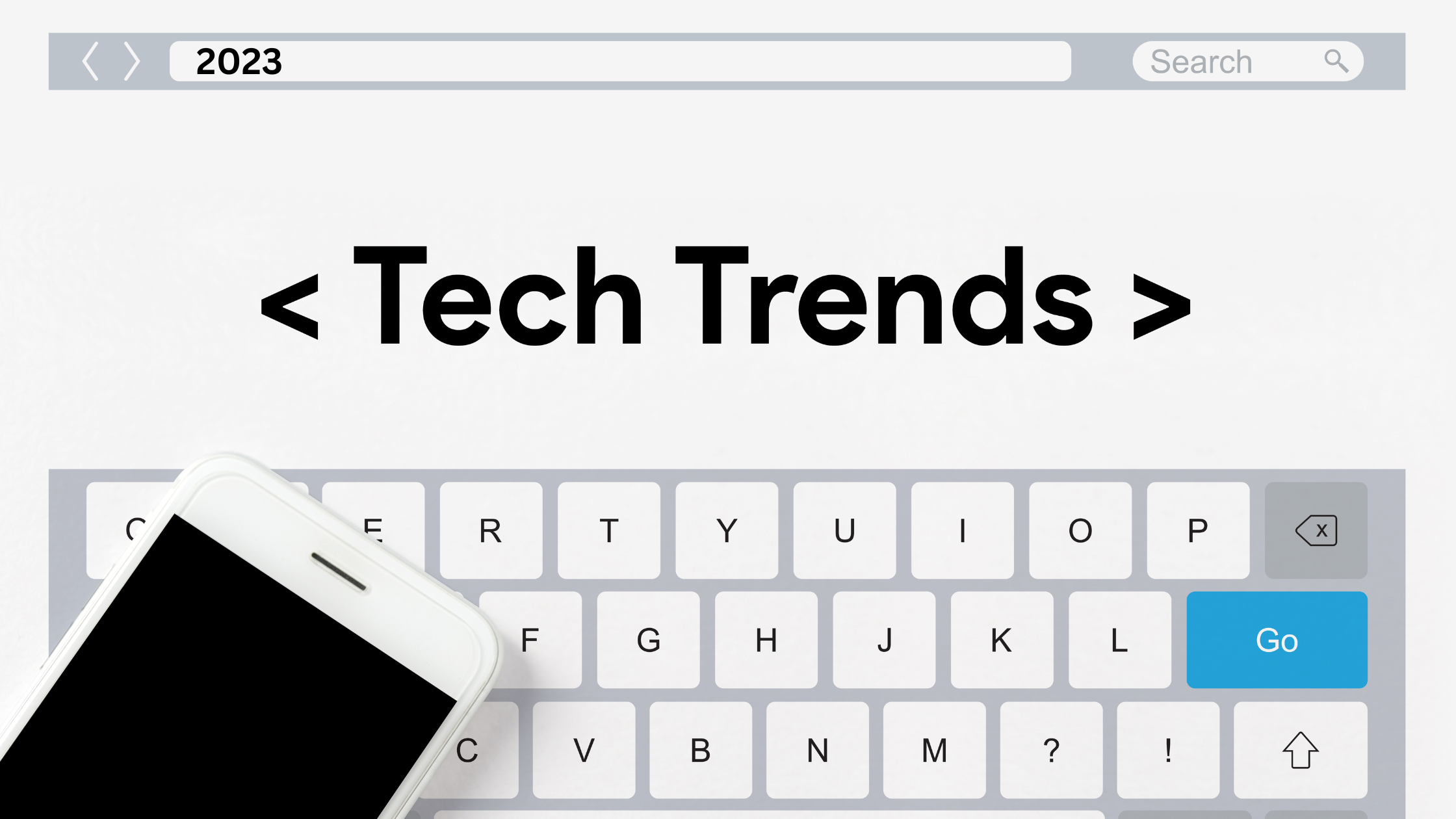How Do AI and IoT Work Together?
AI and IoT are two technologies that have revolutionized our lives and work, offering new ways to optimize processes and make informed decisions. AI (artificial intelligence) provides the ability to simulate human intelligence in machines, allowing them to think and act like humans. IoT (Internet of things), on the other hand, is a network of connected devices that can gather and exchange data, providing real-time information and insights.
When AI and IoT are combined, they create a robust system that can analyze large amounts of data and provide actionable insights in real time. AI can use the data generated by IoT devices to make predictions, automate processes, and improve decision-making. Meanwhile, IoT can provide AI with a network of connected devices that can gather and transmit data, to respond to changing conditions in real time. The potential of AI and IoT working together is vast, and they are already being used in various industries, such as manufacturing, healthcare, and intelligent home automation.
Artificial Intelligence Explained
AI, or Artificial Intelligence, refers to the simulation of human intelligence in machines designed to think and act like humans. AI systems use algorithms, data analysis, and natural language processing to make decisions, solve problems, and perform tasks. Several types of AI exist, including rule-based systems, decision tree systems, neural networks, and deep learning systems. These different types of AI are used in various applications, such as natural language processing, image and speech recognition, and decision-making.
The basic idea behind AI is to create systems that can learn from data, make predictions, and take actions based on those predictions. AI systems work by using algorithms that are designed to identify patterns and relationships. Once the system has learned from the data, it can use that knowledge to make predictions and take actions without being explicitly programmed. The more data an AI system has access to, the better it can perform, as it can learn from more diverse experiences. As AI continues to evolve, it is expected to play an increasingly important role in our lives and businesses.
Internet of Things (IoT)
The Internet of Things (IoT) is the interconnected network of physical devices, vehicles, home appliances, and other items embedded with electronics, software, sensors, and connectivity which enables these objects to collect and exchange data. IoT allows these devices to be connected to the internet and each other, allowing for remote monitoring, control, and automation of systems. IoT is a rapidly growing technology, and it has the potential to revolutionize many aspects of our lives, from home automation to industrial control systems.
IoT devices can be found in smart homes, wearable technology, and industrial control systems. IoT works by embedding sensors and connectivity into everyday objects, which then collect and transmit data over the internet. IoT relies on a combination of hardware, software, and connectivity. IoT devices typically use low-power wireless networks, such as Wi-Fi or Bluetooth, to communicate with each other and central servers.
How Do They Work Together?
The integration of AI and IoT can transform our lives and work by providing new ways to streamline processes and make informed decisions. The combination of AI's ability to analyze large amounts of data and IoT's network of connected devices provides organizations with a powerful tool for automating processes, making predictions, and improving decision-making.
An IoT-connected factory could use AI to analyze production data and predict which machines are likely to break down, allowing maintenance to be performed proactively.
Another example is in healthcare, where IoT-connected medical devices can transmit patient data to an AI system, which can then analyze the data and make predictions about the patient's health, providing healthcare providers with valuable insights.
The key components of AI and IoT integration include connected devices, data management and analysis, and AI algorithms. Connected devices provide AI systems' data to make predictions and take action. Data management and analysis systems store, process, and analyze the vast amounts of data generated by IoT devices. Finally, AI algorithms are used to analyze the data and make predictions, allowing for real-time automation and decision-making.
The Future of AI & IoT
The combination of AI and IoT will bring significant changes and improvements to a number of industries. Predictions for the future of AI and IoT include further integrating these technologies into everyday life, resulting in a more connected and automated world. AI is also expected to continue advancing, leading to new applications and capabilities that were previously impossible.
Despite the exciting possibilities offered by AI and IoT, some potential challenges and drawbacks must be considered. One of the biggest challenges is the issue of data privacy and security, as the increasing number of connected devices raises concerns about protecting sensitive information. Another challenge is the potential for job loss due to automation as AI and IoT systems continue to evolve and become more capable. The future of AI and IoT holds great promise, but it is essential to approach this rapidly developing technology with caution and focus on responsible development and implementation.
Final Thoughts
The integration of AI's ability to analyze vast amounts of data and IoT's network of connected devices can provide organizations with new ways to optimize processes and make informed decisions. However, we must approach AI and IoT with caution, considering the potential challenges and drawbacks associated with the widespread adoption of these technologies.
Are you interested in learning more about how AI and IoT can benefit your organization? Our team of experts is dedicated to helping organizations of all sizes harness the power of AI and IoT to optimize processes, improve decision-making, and drive growth. With a focus on responsible development and implementation, we are committed to helping our clients stay ahead of the curve in the rapidly evolving world of technology. Contact us today to learn more about how we can help your organization leverage the power of AI and IoT.
Speak to an IT Expert
Are you using Microsoft 365 to its full potential? 5 Ways Microsoft Office 365 Can Help Your Business Grow
Are you currently using Microsoft 365? Their large selection of available features is overwhelming. There’s such a wide array of products, apps, and plans. They are cool IT toys!
If you are using 365, are you utilizing all the valuable tools it comes with (that you’re already paying for anyway)? Microsoft 365 can help your business grow! We could go on for days about what it can do, but let’s start with the top 5 ways this software can improve your business immediately when used to its full potential.
5 Ways Office 365 Can Help Your Business Grow
It’s essential to remember that the more robust plan you choose, the more features you’ll have access to. Here are five ways Microsoft Office 365 can help your business if you have any of these features as part of your subscription:
- You’ll have the latest tools and features a growing business needs to succeed. Of course, you’ll have the basics, which include Microsoft Word, PowerPoint, and Excel. But you’ll also have a variety of cloud-based apps that make communication a breeze. You’ll be able to book clients online, track projects across teams, work offline, update your documents when you reconnect to the internet, and so much more.
- Employees can securely stream their desktop setup across devices. This means that whether they’re working from a computer, tablet, or mobile phone, they can set up their home screen the same way across all devices. This allows for a seamless and more efficient user experience, meaning your employees remain as productive as possible no matter where they work.
- Your data is safeguarded. Office 365 provides the tools your company needs to ensure your data is protected. This reduces the chances of hackers getting into your systems and stealing or erasing your data. It can also help protect your company when an employee inadvertently clicks those links in phishing emails, putting your data at risk.
- You can provide your teams with a better-shared experience. Microsoft Planner and Microsoft Teams are two ways to help ensure the teams across your company are on the same page and able to communicate efficiently and timely within their team and with other groups.
- Microsoft 365 can help foster innovation. You can hold meetings with digital whiteboards. Within these whiteboards, your teams can record notes. Information is easily shared across the company, and all employees can access it whether they’re onsite or working remotely.
8 Features You May Not Know About
Microsoft 365 boasts a powerful suite of productivity tools, some of which may not be immediately obvious to users. Here are a few hidden features of Microsoft 365 that you may not know about:
- Office Lens: This app, available for both iOS and Android, allows users to take pictures of documents, whiteboards, or business cards and then convert them into editable Word or PowerPoint documents.
- Office Delve: This feature, available to Office 365 users, allows you to discover and share information and content that is most relevant to you. It uses machine learning to surface content based on your interests and interactions with others.
- Forms: This feature allows you to create surveys and quizzes quickly and easily in Word or Excel. You can then share the forms with others and collect real-time responses.
- Microsoft Stream: This video streaming service allows you to share, upload, and stream videos within your organization. It also allows users to add captions and subtitles and search within videos for specific content.
- Planner: This feature allows you to efficiently create and manage tasks and projects. You can assign tasks to team members, set due dates, and track progress.
- Power Automate: This service allows you to automate repetitive tasks and workflows, such as sending an email when a form is submitted or copying files from one location to another.
- Power BI: This feature allows you to connect to various data sources, create interactive visualizations, and share insights with others in your organization.
- StaffHub: This feature is designed for shift-based workers. It allows managers to create and manage schedules, communicate with their staff, and track time off requests.
These are just a few of the many hidden features of Microsoft 365 that can help you work more efficiently and effectively. By exploring and utilizing these features, you can make the most of your investment and get more done in less time.
Enterprise Mobility: Productivity and Security
When choosing the right plan for your business, we highly recommend Microsoft 365 Enterprise. It has everything you need to help your business grow, including Enterprise Mobility and Security. The apps are cloud-based, allowing your team to work efficiently from anywhere across all of their devices.
This version of Microsoft 365 comes with two plan options, both under $17 a month. You’ll get more than your money’s worth.
See How Much Your Business Grows When You Combine Office 365 with Professional IT Support
Even the most powerful tools can be challenging to use and manage without the proper support. That's where professional IT support comes in.
When you combine Office 365 with Professional IT Support, you can ensure that your Office 365 environment is set up and configured correctly and that your team is trained on how to use the tools effectively. You’ll quickly see how much more streamlined and efficient your business can be.
At Intuitive Networks, we leverage high-level strategies with best-in-class applications to create a customized IT support plan for your business. Our services can help your business meet its goals and exceed expectations.
Speak with an IT expert!
Your World-Class Managed IT Services Provider
When it comes to running your business, managed cloud services are becoming increasingly popular. Managed cloud services offer partial or complete management of a company’s cloud resources and infrastructure. Moving your business to the cloud provides high flexibility and security for your applications and data. According to new research from Gartner, “more than 85% of organizations will embrace a cloud-first principle by 2025 and will not be able to fully execute their digital strategies without the use of cloud-native technologies.” This research report estimates that more than “95% of new digital workloads will be deployed on cloud-native platforms, up from 30% in 2021.”
What is a Managed Services Provider (MSP)?
We see more and more companies move to the cloud, and if your company is considering that same leap, we’re here to support you as your managed IT services provider (MSP). That means that we can help move your data and processes to the cloud and manage the entire scope of your IT needs, including delivering network, application, system, and security services on a subscription basis. Essentially, we enable companies to shift the cost and responsibility of physical data storage and processing to us. We work with you to mold your cloud environment to meet your unique needs and ensure your daily operations are more efficient.
Our cloud-managed services include:
- Cloud Hosting: we keep your data safe in our private, secure data centers.
- Unified Communications: we ensure straightforward and seamless communication systems.
- Office 365 Support: we provide essential Microsoft tools - including migrations, integrations, management, and more.
- Virtual Server Hosting: we handle all your server flexibility and scalability, including assisting in moves from a physical server to a virtual server on the cloud.
The Benefits of Cloud-Managed Services
There are many benefits to moving to cloud-managed services:
- Increased scalability: as your business grows, we can work with you to implement the infrastructure required to support your growth. We can scale up or down as needed.
- Enhanced communication: we can utilize the cloud to ensure clear communication channels for your company - both internally and externally. We can tailor communications to meet the needs of various facets of your business.
- More storage space: utilizing cloud storage eliminates the need for on-site servers, which means we can scale up or scale down your cloud storage capacity to meet your company’s needs.
- Increased security: we work with you to secure the future of your business, and we’ll handle all your security battles.
- Improved system reliability: we specialize in understanding your company’s goals and creating reliable cloud hosting solutions.
- 24/7 monitoring: we provide 24/7 remote monitoring to keep a close watch on your servers, firewalls, network gear, and other systems to ensure your IT is secure and running as efficiently as possible.
Why You Need to Implement Cloud-Managed Services in Your Business
As technology continues to grow and change rapidly, as your MSP, we’ll be with you - utilizing that technology to help you grow your business. We’ll take care of your technology so that you can focus on your company’s day-to-day operations and needs. Our goal is to ensure your network is regularly maintained and help you avoid costly disruptions to yield higher productivity and save on support. As an industry-leading managed services provider, we provide reliable cloud-managed services and access to your applications and business data.
Ready to make the leap to the cloud? Let’s get started!
Chat with an IT Expert Today
Remote IT Support Saves the Day
While information technology consulting and services are crucial, present-day technology advancements have shifted the need for on-site IT professionals. This means remote IT support is more prevalent than ever. And just as phones, TVs, and even kitchen appliances have progressed into bright and polished pieces of technology many of us could not live without, remote IT services have also evolved.
Most functions and daily processes of a modern business already happen in the cloud. This means that most day-to-day IT support matters likely fall under the scope of software, process, network, or even security issues. All of these can be solved through remote IT services!
So, what are the benefits of remote IT services that can help support and grow your business?
6 Benefits of Remote IT Support
Technology is rapidly shifting to keep up with the present-day business landscape. Hybrid and remote work is at an all-time high. This change means that employees work from various locations with massive dependability on laptops and mobile devices to ensure they stay connected. This creates a need for remote IT services supports more than ever before.
Continue reading as we explore the top 6 benefits of remote IT support.
1. 24-Hour Availability & Convenience
Since most companies work from 9 am to 5 pm, so does their in-house IT department! However, having a remote IT support team means businesses receive immediate assistance at any hour of the day. There is no need to wait until the following business day when you have remote IT support.
2. Remote Maintenance and System Monitoring
Most businesses tend only to fix something once it’s broken. This isn’t necessarily a bad practice; however, it typically causes a pause in production and a headache for you. Remote system monitoring takes a more proactive approach to detect potential issues and resolve them before they arise.
3. CyberSecurity
Hackers and cybercriminals go for the low-hanging fruit, and companies without cybersecurity measures in place make easy targets. Working with a remote IT team ensures your business is safe from data thieves even when you’re asleep.
4. More Time to Focus on Your Business
With remote IT support, your business can thrive and grow without potential technology setbacks along the way. Just think of how much more productive your employees will be once they are alleviated of technical issues.
5. Off-Site Backup
Off-site backup is a crucial method for data recovery regardless of what takes place in your office. Having a remote backup source is essential because, as we’ve previously mentioned, data breaches and cyber-attacks are frequent in today’s climate. Having a safe place to store all of your client's data is a good idea.
6. Access to New IT Products and Services
Staying up to date is crucial for productivity and efficiency. A remote IT support provider keeps your business up to date with changes and makes recommendations on updates and new software to help streamline your business.
Final Thoughts
Are you ready to implement remote IT services in your business? Call us today to see how we can improve your workflow and better serve your technology needs.
Schedule Your Free Consultation
How Can an MSP Help Make Your Business More Profitable & Propel You Forward
As technology continues to evolve at lightning speed, so does the constant concern about security. No matter the size of your business, it’s important to have the proper measures in place to protect your company. One way to do this is to use a managed service provider (MSP). An MSP will partner with your company to ensure your technology infrastructure is running efficiently while supporting business goals. Your MSP will remotely monitor your network 24/7. This helps ensure that your company’s data is protected and your software is running smoothly; it also means that any potential problems are addressed and fixed before they affect your customers.
Some of the services that an MSP provides include:
- Backup and recovery services (for hardware and software)
- IT support/helpdesk responsibilities
- Cloud computing and storage services
- Desktop / remote work services
- Network design & implementation
- VoIP phone services
So how can an MSP help your business grow and become more profitable in 2023? Read on to find out!
How an MSP can Increase Your Company’s Profitability
As a business owner, you’re constantly thinking of ways to increase profitability. One thing you may not have considered is how technology can improve your company’s daily operations. One of the highest costs of implementing and maintaining these new technologies is labor. For small- and medium-sized businesses, often hiring in-house, IT staff can be too expensive. By outsourcing your IT, you can increase your business productivity and, in turn, profitability.
Working with an MSP also increases profitability by helping your company to be more efficient. Implementing time-saving automation and organizational strategies, an MSP can ensure your systems and staff are organized and help improve efficiencies. According to CompTIA’s annual Trends in Managed Services study, more than 75% of companies surveyed noted that MSPs and cloud computing had a positive impact on their revenue. Additionally, 70% of companies noted that MSPs and cloud computing improved their customer relationships.
How an MSP can Grow Your Business
Outsourcing your IT can also help your business grow by allowing your company to focus on your core business mission and offerings. An MSP allows you to outsource IT problems so that you can focus on driving more profit for your company. Additionally, an MSP means that technical issues won’t affect interactions with your customers. Technical difficulties can often mean unplanned downtime, slow internet connectivity, or loss of data. An MSP will give you the peace of mind that technical issues won’t interfere with customer relationships.
Additionally, working with an MSP allows you to increase your customer offerings. As we noted in the CompTIA research, increased offerings can improve customer relations, which can, in turn, help your company to grow!
Work with an MSP in 2023!
If you’re ready to take the next step in growing your business and increasing your company’s profitability in the year ahead, we’re here to support you! As an MSP, our team of IT experts is here to allow you to offload your IT taste and free up your time and expertise to focus on other parts of your business. We look forward to helping you increase your company’s profitability and growth in the coming year!
Schedule An Appointment
The 10 Best Software Programs To Keep Your Business Safe, Productive, And Headache-Free In 2023
As we move into 2023, it's more important than ever to make sure your business is running as smoothly as possible. This means investing in the right software programs! This blog post will discuss the 10 best business software programs for a productive, safe, and headache-free year. Whether you're looking for a program to help you stay organized or one that will keep your data safe, we have you covered.
Why Are Software Tools Necessary For Your Small Business
Running a small business can be challenging. Still, it's essential to ensure you have the right tools in place to succeed. You might be a one-man band or a close-knit group of specialists; either way, as a small business owner, time is your biggest asset. Software programs are available to ensure you don't waste time on repetitive tasks or administrative work.
For Project Management
Project management software is vital for any business, as it helps you keep track of your tasks and deadlines. Many different project management software programs are available, but a few of the most popular choices for small businesses are Asana, Trello, and Monday.
- Asana is a great project management software program for businesses with a high volume of projects going on at once. It allows you to create and manage multiple projects simultaneously. Asana is also cost-effective, offering a free plan for small businesses. Additionally, Asana is easy to use and has many features that can help you stay organized. For example, you can create lists, tasks, deadlines, and add notes to your tasks.
- Trello is another popular project management software program. It allows you to create boards with cards representing different tasks, which can be especially helpful for businesses that need a more visual way to track their projects. Trello offers plans from $0-$5/month, which is ideal for small businesses on a budget. Trello is also easy to use and has many features to help you stay organized, including adding due dates, labels, imagery, and comments to your cards. If you're looking for a good project management software program with a visual twist, Trello is a good choice.
- Monday is a robust platform, excellent for teams managing tasks & workflows. Monday offers a large variety of integrations to seamlessly connect the tools you already use in your business to have all your team's work in one place. The Build Your Own feature allows you to customize workflows unique to your business's existing processes and procedures. For an even more customized experience, four additional software variations are available. The Sales CRM for sales & customer-facing teams provides tools for contact management, managing sales pipelines, and lead management. Monday Dev for product & development teams is for roadmap planning, bug tracking, website planning, and project management.
Monday Marketer, designed for marketing & creative teams, includes a content calendar, campaign tracking, and tools for managing marketing projects. For PMO teams & project managers, there's Monday Projects, which includes advanced project management tools, portfolio management, and a critical path feature.
For Email Management
Many different software programs are available for email campaigns and contact management. Two of the most popular options are MailChimp and Constant Contact. MailChimp is a great choice for businesses just beginning their email marketing journey, as it's free for up to 2,000 subscribers. Constant Contact is a good choice for businesses needing more features than MailChimp offers, such as creating polls and surveys.
- MailChimp is a popular email marketing software that allows you to handle all your email campaigns in one place and is free for up to 2,000 subscribers - making it a great choice for small businesses. MailChimp also offers a variety of templates and allows you to create custom designs for your emails and landing pages. The a/b split test feature allows two variations of the same campaign to be sent to an audience to compare marketing angles.
- Constant Contact, like Mailchimp, is a popular email marketing software that allows you to create and send newsletters, promo emails, and various types of email campaigns. While more expensive than MailChimp, Constant Contact offers more features, such as the ability to create polls and surveys. It's also an excellent tool for organizing and uploading contacts, with a variety of CRM features.
For Accounting
Managing and tracking finances can be daunting for small business owners. However, there are software programs available to help make this process easier. Two of the most popular finance software programs are QuickBooks and Xero. Both are designed for small businesses and help you keep track of your income and expenses.
For Human Resources
Running an effective team requires effective team management. Any small company should equip itself with Human Resources management programs to give employees a great experience with onboarding or off-boarding. A few top options for small businesses in 2023 are BambooHR and Gusto.
- BambooHR is cloud-based software, which means you can access it from anywhere, and it offers many features that can help you manage your employees, such as the ability to create employee files, track time off, and generate reports. Additionally, BambooHR has a mobile app that allows you to access your account on the go.
- Gusto is a human resources software program designed specifically for small businesses. It helps you keep track of employee information, including contact information and job titles, and also allows you to create employee files and track time off. Additionally, Gusto offers helpful features such as the ability to print checks and generate reports.
For Communications
Whether in-office or working remotely, communication is key to ensuring that your team stays looped in and connected. That's where Slack comes in.
- Slack is a messaging app that allows you to communicate with coworkers, clients, and other businesses using project-based channels and direct messages. Additionally, Slack offers many helpful features, such as file sharing, creating polls, and collaborative conversations.
Final Thoughts
There are many software programs available to small business owners to help manage projects, finances, HR, and email marketing. While all of these programs have unique features, they all share one common goal: to make managing a small business easier. So if you're feeling overwhelmed by the amount of work it takes to run your business, consider using one or more of these software programs. They can help lighten your load and allow you to focus on what's important: running your business. The INI team can help you and your small business.
Call Us Today!
Zero-Trust Model - Is it Right For Your Business?
The Zero-Trust Security model shifts our thoughts about security. No, this isn’t some new product or service we’re trying to pitch. Instead, think of it this way: rather than identifying something you’d like to protect and building a wall around it to keep hackers on the outside, all users must constantly prove themselves trustworthy - whether inside or outside the network. In the world of constantly expanding remote work and cybersecurity, a shift to zero-trust security can be a game changer. Why zero trust? Well, it’s in the name: zero trust means “trust no one, verify everyone.” This cybersecurity concept arose because most data breaches often happen from the inside - such as when a hacker steals someone’s credentials, allowing them to move around virtually unchecked. According to recent research by IBM, the average data breach cost amounted to $4.24 million. And according to a recent study by Cybersecurity Insiders, 73% of organizations are in various stages of zero trust security adoption.
But before you can decide whether or not zero-trust security is the right move for your company, let’s dive deeper into how it works and some benefits of this shift in cybersecurity.
How Does Zero-Trust Security Work?

Zero-Trust security operates on two guiding principles: continuous validation and least-privileged access.
- Continuous Validation: Your cybersecurity uses a continuous process of authorization rather than a single validation. This means the user must prove their trustworthiness before moving through the network. One way to think about this is that there is a house, and each user has a unique set of keys to get in. Each user may have a key to get them into the front door, but each room inside the house requires another set of keys, and once you enter a room, the closet or dresser also requires a different key for each. In this example, the keys all represent other points of validation needed for each user to move throughout the network.
- Least-Privileged Access: Access is restricted based on each user’s identity and context. For example, one user might only be able to access the applications required to perform their job rather than access everything within the network.
Benefits of Zero-Trust Security
If you’re a company with remote workers, cloud-based services, or possibly both, the zero-trust security model is an ideal consideration for your business. There are several reasons for this. Remote works use a variety of wi-fi networks and devices - all of which have access to sensitive company information. The zero-trust model can help solve the issue of how to protect your company’s data by closing those security gaps. Other benefits include:
Specific Identity and Access Management
Identity and Access Management (IAM) is one of the first steps to a zero-trust model. IAM creates secure connections between people, devices, apps, and data by using a single identity solution that gives you flexibility and control. When used with multifactor authentication (MFA), every identity is verified before being granted access; Each employee’s access can be controlled in relation to their position in the company.
Simple Integration
A well-designed zero-trust security solution is easily integrated with an organization's identity management system. Users will benefit from a seamless and transparent authentication and access system. Since IT and security teams can easily define access policies that follow users across their devices, this will significantly reduce malware and ransomware attacks.
Easy Scalability
Since zero-trust security systems are cloud-native, it’s easy to scale across your entire workforce regardless of end-user location or choice of devices. This means you can rest assured that your company’s data is safe without disrupting your everyday workflows.
Interested in Zero-Trust Security for Your Business?
A successful zero-trust security approach aims to easily integrate, consolidate, and simplify many legacy cybersecurity technologies. This means no more IT headaches and late nights worrying about data breaches! You and your employees can rest assured that your company’s data is safe no matter where and on their working devices. Employees will have access to the resources they need to do their jobs.
Zero-trust systems can also help create automated threat responses and help track security threats. We know how important it is to keep your company running smoothly and securely. Implementing a zero-trust security system is worth considering as more employees move to remote or hybrid work environments. If you think this cybersecurity solution is right for your business or have questions about zero-trust security, our team can help! Our IT team is here to help alleviate your cybersecurity pain points. Just contact us to get started!
Schedule An Appointment
What Do Viruses and Other Malware Do?
The internet is remarkable, from streamlining our businesses to allowing us to co-work internationally to being the home to some really cute cat videos, but it’s not a place you want to find yourself unprotected. While the internet is full of convenience and opportunity, we’re not the only ones taking advantage of it. According to one report, 560,000 new types of malware are detected every day. The same report says that four companies fall victim to malware for each minute of the day. The most prominent malware threat comes from a Trojan, meaning it’s disguised as something legitimate, but it fooled you.
This is why educating yourself and your team to identify common malware pitfalls is so important. And why cyber security needs to be a top priority for your company. Even big corporations fall victim to cybercriminals, so you must take this seriously.
What is Malware, and What Does It Do?
Malware is a severe threat. It’s software that sneaks into your computer and destroys everything on it. The term malware is short for “malicious software.”
You might think that malware only threatens your computer, but that’s not true. It can also hit your smartphone or tablet. Any device that connects to the internet risks being infected with malware.
Cybercriminals will often use malware to extract data from your computer. Then, they like to use it as ransom to get people to pay them to get the information back. It’s why having a managed security system is so important.
What Are Viruses and What Do They Do?
A computer virus is simply a type of malware that attaches to another program and replicates it after it’s used on a computer, tablet, or mobile device.
Often, computer viruses are spread through email. They typically come in an attachment, and the virus loads onto your computer when you click on the attachment. You won’t even know you did it at first.
As with other malware, viruses can destroy your data and can also slow down your computer. For many people, that might be the first sign something is wrong.
This is a severe threat, especially for businesses that have employees are may not be as computer savvy when it comes to these threats. It’s just too easy for one employee to spread it to another.
What Are the Negative Impacts of Both?
Malware and other computer viruses steal your data, hold it for ransom, slow your computer down, and spread quickly between employee computers. But other harmful things can happen when you are a victim of malware attacks.
Expect Them to Steal Your Information
When you fall victim to malware, your personal and business information is now in the hands of cybercriminals. Sometimes, they won’t hold it for ransom; they’ll sell it to someone else.
They now have your computer browser history, all your passwords, and your client’s information.
It Will Not Be Business As Usual
Don’t expect your employees to be able to go about their jobs as usual. They’re going to run into many detours trying to use their computer, usually in the way of pop-ups. And some cyber criminals like to have a little fun by setting up, so they are constantly redirected to your competition’s site.
What You Need to Do to Protect Your Business
You might not feel like your business can afford the extra expense of hiring IT services, but the truth is, you can’t afford not to. Managing your business’ infrastructure is a full-time job. Let our experts at Intuitive Network do it for you. Our experts are reliable and proactive. You can expect to feel peace of mind knowing they have your back.
How to Make Tech Work For You as We Enter 2023
As we head into these final months of 2022, it’s time for us to take a holistic look at the year ahead. We’re more than two years out from the beginning of the pandemic, and it’s clear that remote and hybrid work models are here to stay. A recent Pew Research Center Survey noted that nearly 60% of workers in the U.S. who can work remotely would continue to do so by choice. This new work model can come with many benefits - not the least of which is an improved work/life balance for your employees. This shift also necessitates new collaboration tools and technologies that make your company’s day-to-day operations smoother and more effective. Ultimately, these new technologies should make your business life easier.
Top 5 Tips to Make Tech Work For You
When it comes to new technologies, it can often feel like the possibilities are endless! Luckily you don’t need a computer science degree to work through all these choices. We’ve created the following list of the top 5 ways to make technology work for you. This list aims to help improve your business workflow, and our team is here to ensure you won’t have any IT headaches as you head into 2023!
1. Remote CyberSecurity
Cybersecurity has always been an integral part of your company’s security efforts, but as remote work trends increase in popularity, it’s essential to invest in cybersecurity for your employees’ home networks. This can often seem challenging since it requires setting up Virtual Private Networks (VPNs) or similar security measures to ensure security for employees working from home. Since this trend is here to stay, discussing ways to increase your company’s remote cybersecurity is important.
2. Software-as-a-Service (SaaS)
This next trend continues our first tip. As the workplace moves to more flexible and hybrid work models, SaaS and cloud-based platforms are on track to eclipse on-premise IT approaches. A recent Gartner report predicts that cloud offerings will grow to $655 billion in revenue by 2023, up $111 billion from 2022. While these SaaS and cloud infrastructures are necessary to meet the demands of current work trends, there is also the added benefit of significant savings. According to a recent Microsoft IT Pros report, companies are seeing an average annual savings of around 30%. Moving to the cloud provides convenient scalability with seemingly endless data storage that can easily surface on-premise capacity limits.
3. Device Flexibility
A flexible work model means more companies and employees seek flexibility in their work devices. Many are opting for the ability to work on lighter-weight handheld mobile devices. Since your company has already followed tip #2 and invested in SaaS and cloud-based infrastructure, you’ll have no problem keeping up with this demand! This software can make it easy for employees to work from anywhere, on any device.
4. Adaptive AI
AI is quickly becoming an integral part of our daily work and personal lives. Predictive coding, data analytics, and smarter algorithms are becoming more effective and efficient than ever. Adaptive AI systems can dynamically use real-time feedback and shift learning while adjusting goals. Traditional AI functions on static learning capabilities with slower development times. Essentially it’s unable to learn from interacting with its data. This new adaptive AI can learn from new data and experiences and adjust accordingly.
5. Superapps
You’ve heard of apps, but have you heard of a superapp? Simply put, a superapp combines the features of an app platform into one ecosystem. According to Gartner, half of the world’s population is expected to be a daily user of multiple superapps by 2027. This trend will affect workflow, collaboration, and messaging platforms, due to the ability of superapps to consolidate and replace multiple apps.
Need Help Implementing with IT?
Whether you’re a small, midsize, or enterprise business, our team is here to support your IT needs. Our progressive IT services are customized to ensure we can alleviate your unique pain points while also helping you grow your company into the future.
Social Media Terms of Service
Social media terms of service, also known as terms and conditions, are typically extremely lengthy contracts in the tiny fonts that we tend to skip over as quickly as possible. However, those sneaky paragraphs we often skim past to get to the end of the page hold valuable information. Needless to say, privacy policy contracts are lengthy, and although everyone should read them, rarely does anybody.
With an abundance of social media platforms and their corresponding apps, it’s quite difficult to get through all of the terms of service in one session. We get it; we don’t want to read long and confusing legal documents either. That is why we’re here to shed some light on social media terms of service.
Understand What You Are Signing
So, what is hidden in those extensive paragraphs?
When agreeing to a social media platform's terms and conditions, you are confirming the terms of their license. Mind you; this license is legally binding and quite serious in that it protects whatever you are signing up for. Contracts generally require an offer and consent. This means that the user must signal their compliance by clicking acceptance of the terms or providing a digital signature. Other social media platforms imply consent by the use of the platform, with the terms of service, or terms and conditions, provided in a link often found near the bottom of a platform's homepage.
One of the important terms to look out for is the intent for which a license is permitted. This may be specified as “for the sole purpose of promoting the website,” or a purpose may not be specified at all. It is worth knowing whether the purpose of a given license includes commercial use of copyright-protected work.
Understanding Your Privacy Rights
Although terms of service contracts may be a bit confusing and hard to digest, it is essential to know that any changes to the social media platform's terms of service must be easy to understand for its users. The Federal Trade Commission (FTC) has enforced actions against Google and Facebook for "unfair and deceptive" practices in how these giant companies provided their users notice on how their personal data are handled on a daily basis. This means you can relax knowing that the FTC has your back.
However, don’t get too excited just yet. Courts have yet to assign any value to privacy rights. However, recent legislative changes are quickly shifting the conduct of social media platforms. While Europe's General Data Protection Regulation does not directly impact privacy protection for people in the United States, it has inspired the state of California to take some action. The requirements that mirror some of Europe's changes include – clear notice and consent requirements for the use of personal data, along with restrictions on how the personal data of social media platform users are handled.
So, what's the deal with TikTok?
TikTok has been in the news recently for its fine print within its terms of service that nobody reads.
Here is a snippet from their privacy policy for your reference:
Device Information
We collect certain information about the device you use to access the Platform, such as your IP address, user agent, mobile carrier, time zone settings, identifiers for advertising purposes, model of your device, the device system, network type, device IDs, your screen resolution and operating system, app and file names and types, keystroke patterns or rhythms, battery state, audio settings, and connected audio devices. Where you log in from multiple devices, we will be able to use your profile information to identify your activity across devices. We may also associate you with information collected from devices other than those you use to log in to the Platform.
In short, the concern with TikTok is legitimate, and it would be a good idea to look through their privacy policy fully during your downtime. Better yet, give us a call and ask us about true mobile security for your devices.
Can TikTok access your camera even if the app is closed?
Although this still remains under debate, we are now aware that TikTok has full access to the audio, video, and address book on any given device while the app is open. While it isn’t surprising since TikTok is an audio-visual application, what is rather shocking is the GPS tracking mentioned in their privacy policy. This is especially surprising because TikTok videos don’t inherently display location information for other users to see. In conclusion, TikTok should be treated with caution, just like any other social media platform. Always remember that whatever you record will be seen by others whether you like it or not.
Protect Your Rights and Intellectual Property
Social media has become a much-integrated part of both our personal and professional lives. Learning how to stay safe while posting on social media is especially important with the increasing amount of integrated payment systems, apps, phone verification, and touchless technology. Here are some best practices to stay safe while using your favorite social applications.
- Adjust your privacy settings.
- Be cautious of sharing too much personal information.
- Verify who you are connecting with.
- Use strong passwords (mix these up for each of your social media accounts).
- Click links with caution.
- Become familiar with the privacy policies of the social media platforms you use on daily basis.
Here at Intuitive Networks, we're not just all about IT services - Contact us today and get real IT support from industry experts.









